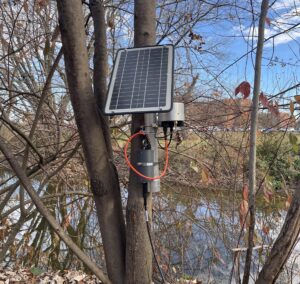Proactive Drum Pump
Features
- Lifts up to 30 feet
- Constructed from high impact ABS plastic material
- Operates from 12VDC battery or vehicle port
- Expedited repair and warranty service
- Lifetime technical support
- More
Overview
The Proactive Drum Pump is a powerful little pump that will drain over 185 gallons per hour by connecting to a 12-volt battery or vehicle port. The pump is constructed of super strong ABS material, so it will not rust or corrode.
Design
Simply submerge the pump into whatever needs draining, connect the 12-volt battery leads or cigarette plug, and begin pumping. The Drum Pump is maintenance-free and offers a long life using a high-performance self-contained 12-volt DC motor.
- Power Consumption: 60 Watts (max)
- Volt Recommendation: 12-15V at source
- Maximum Amp Output: 4 Amps
- Measurements: 4.5" length x 1.43" diameter
- Required Tubing: 3/8" or 1/2" ID tubing
- (1) 12V Drum pump with 13' wire lead
- (1) 10' 3/8" clear PVC tubing
- (1) Cigarette plug
- (1) Set of 12V battery clamps
In The News
Monitoring Meadowbrook Creek: Real-Time Data Collection in an Urban Creek
Meadowbrook Creek in Syracuse, New York, has been monitored by Syracuse University (SU) faculty and students for over a decade. Originally established by Dr. Laura Lautz in 2012, the early years of the program focused on collecting grab water samples for laboratory analysis and evaluating the impact of urban land use, human activities, and natural processes on water resources. Tao Wen , an Assistant Professor in SU’s Department of Earth and Environmental Sciences, took over the program in 2020 and upgraded the existing systems to include 4G modems that allowed for real-time data viewing. [caption id="attachment_39339" align="alignnone" width="940"] An overview of the Fellows Ave monitoring station along Meadowbrook Creek.
Read MoreLancaster County Makes the Switch to Real-Time Water Quality Monitoring Systems
Continuous data collection in Lancaster County, Pennsylvania, started about 5 years ago, and the county will be making a major upgrade over the next year—switching from relying solely on the internal storage of water quality sondes to telemetry units that enable real-time data viewing. [caption id="attachment_39295" align="alignnone" width="940"] The first telemetry unit was installed at LCCD along Little Conestoga Creek. (Credit: Tyler Keefer / LCCD) [/caption] Telling Lancaster County's Story Through Data Since the Lancaster County Conservation District started monitoring county waterways, the goal has remained the same, according to Amanda Goldsmith, Watershed Specialist for the Watershed Department.
Read MoreFrom Florida to the World: How a Smithsonian Research Station is Bridging Gaps in Marine Biology
In the early 2000s, along the coast of northern California, where the redwoods dominate the forests, and the Pacific Ocean shapes shorelines, a Humboldt University undergraduate student took the first steps into a lifelong love of marine biology. Dean Janiak accepted an invitation to help a graduate student with fieldwork in rocky coastal tide pools, and so began a journey that led him from California to Connecticut to Florida and eventually to the world, where he has facilitated research in communities across the globe. While finishing up his masters of Oceanography from the University of Connecticut, Janiak continued researching fouling communities–marine life that live on hard, often artificial surfaces such as docks–at the Smithsonian Environmental Research Center.
Read More








